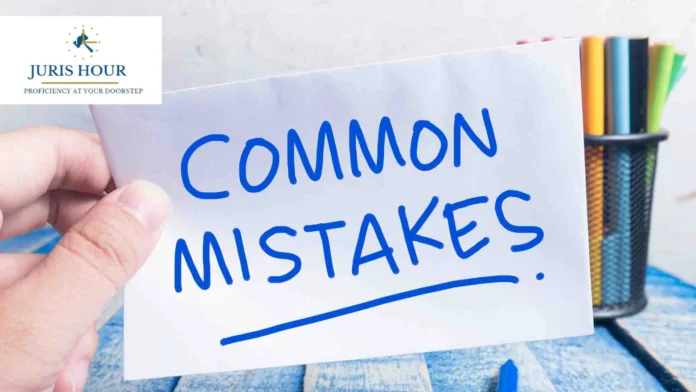Responding to a GST Show Cause Notice (SCN) is not a checkbox task — it’s your first and most crucial opportunity to present your version with clarity, facts, and legal strength.
Unfortunately, many replies fail to make an impact due to avoidable drafting errors.
Here’s a breakdown of what not to do:
1. Quoting Judgments Blindly Without Relevance
Writ courts, being constitutional courts under Article 226 of the Constitution of India, are empowered to grant relief based on the enforcement of fundamental and legal rights, equity, and broader principles of justice—even in situations where statutory remedies may fall short. In contrast, adjudication and appellate authorities under tax laws, including GST, are creatures of statute. Their powers and limitations are strictly defined by the provisions of the CGST Act and the rules made thereunder.
This creates an important distinction: while adjudicating or appellate authorities are bound to operate within the four corners of the statute (and cannot go beyond what is expressly provided), writ courts can grant reliefs even in cases where the statute is silent or seemingly rigid, provided a constitutional right is violated or procedural unfairness is evident.
For instance, a High Court in writ jurisdiction may quash an order due to violation of natural justice or procedural impropriety even if the law does not provide specific recourse. However, the same relief may not be available before the adjudicating authority if the statute doesn’t recognize that ground.
Thus, while writ judgments are binding within the territorial jurisdiction of the High Court, their directions may not always be replicable by lower statutory authorities in other cases, unless backed by statutory provisions. Nevertheless, they still serve as powerful precedents and guideposts, and adjudication and appellate authorities are expected to respect and align their interpretation with settled judicial pronouncements wherever possible.
Don’t fill pages with unrelated case laws. Every judgment you quote should directly support your facts — else, it dilutes your argument.
2. Missing or Poorly Written Facts
The statement of facts is a critical component of any reply or submission in tax proceedings. It sets the foundational narrative on which the entire case rests. A well-drafted statement of facts not only presents the taxpayer’s position accurately but also guides the authority in appreciating the context, intent, and sequence of events. Often, adjudicating authorities lean heavily on the factual matrix while framing their findings, especially in cases involving interpretation, classification, or intent-based provisions like fraud or suppression. A vague or inconsistent statement of facts can weaken even strong legal arguments, while a precise, chronological, and coherent factual narration can significantly strengthen the credibility of the taxpayer’s case and influence the final outcome. In essence, facts are not just background—they are the battleground.
Vague or incomplete facts weaken the foundation of your reply. Present a clear, structured timeline of events, transactions, and documentation — facts win cases before law does.
3. Irrelevant Submissions
Including irrelevant submissions in a reply weakens the overall effectiveness of the representation. It diverts attention from the core issues, clutters the narrative, and may signal a lack of clarity or understanding of the matter at hand. Authorities are less likely to be persuaded by lengthy, unfocused content that fails to address the specific allegations or legal provisions involved. Such submissions can dilute strong arguments and reduce the professional impact of the response. A concise, relevant, and well-structured reply is far more persuasive and respected in adjudication proceedings.
Don’t add irrelevant annexures or issues not raised in the notice. Keep it focused on the allegations at hand. Less is more — if it’s strong and to the point.
4. No Supporting Evidence
A claim without proper evidence holds little value in any legal or quasi-judicial proceeding. In tax litigation, mere assertions—whether about receipt of goods, rendering of services, or eligibility for exemptions or credits—must be backed by concrete documentary proof such as invoices, contracts, transport documents, payment records, or communication trails. Authorities are bound to decide based on the material available on record, not on assumptions or goodwill. Unsupported claims not only get rejected but can also adversely affect the credibility of the assessee. In law, it’s not what you say, but what you prove, that determines the outcome.
If you dispute something — prove it. Attach contracts, payment proofs, GSTR filings, delivery challans, or any evidence that defends your position. A bare denial invites rejection.
5. Disrespectful or Emotional Language
In any legal or administrative proceeding, maintaining respectful and professional language is of utmost importance. Whether drafting replies, submissions, or representations, the tone should reflect decorum and adherence to institutional dignity. Even when disagreeing with the authorities or contesting findings, the language must remain courteous, objective, and focused on facts and legal reasoning. Disrespectful or emotional language not only undermines the credibility of the submission but may also dilute the strength of otherwise valid arguments. Professionalism in communication is a mark of maturity and helps uphold the seriousness of the matter being addressed.
Avoid sarcasm, emotional arguments, or unnecessary aggression. Maintain a respectful tone — be professional, assertive, and fact-driven.
6. Template Replies Without Case-Specific Analysis
Template replies, though convenient, can often do more harm than good in legal or quasi-legal proceedings. Each case has its own facts, nuances, and legal implications that demand a customized and case-specific response. Using generic or boilerplate language may lead to overlooking critical facts, misrepresenting the case position, or citing irrelevant grounds. Authorities can easily detect a copy-paste approach, which may reflect poorly on the credibility and seriousness of the reply. Moreover, such replies may fail to address the specific allegations or legal provisions invoked in the notice, weakening the defense and increasing the risk of adverse orders. A thoughtful, tailored response reflects diligence and command over the case.
Using copy-paste responses from other matters is a major red flag. Each case is unique — your reply should reflect a custom analysis of facts, law, and interpretation.

